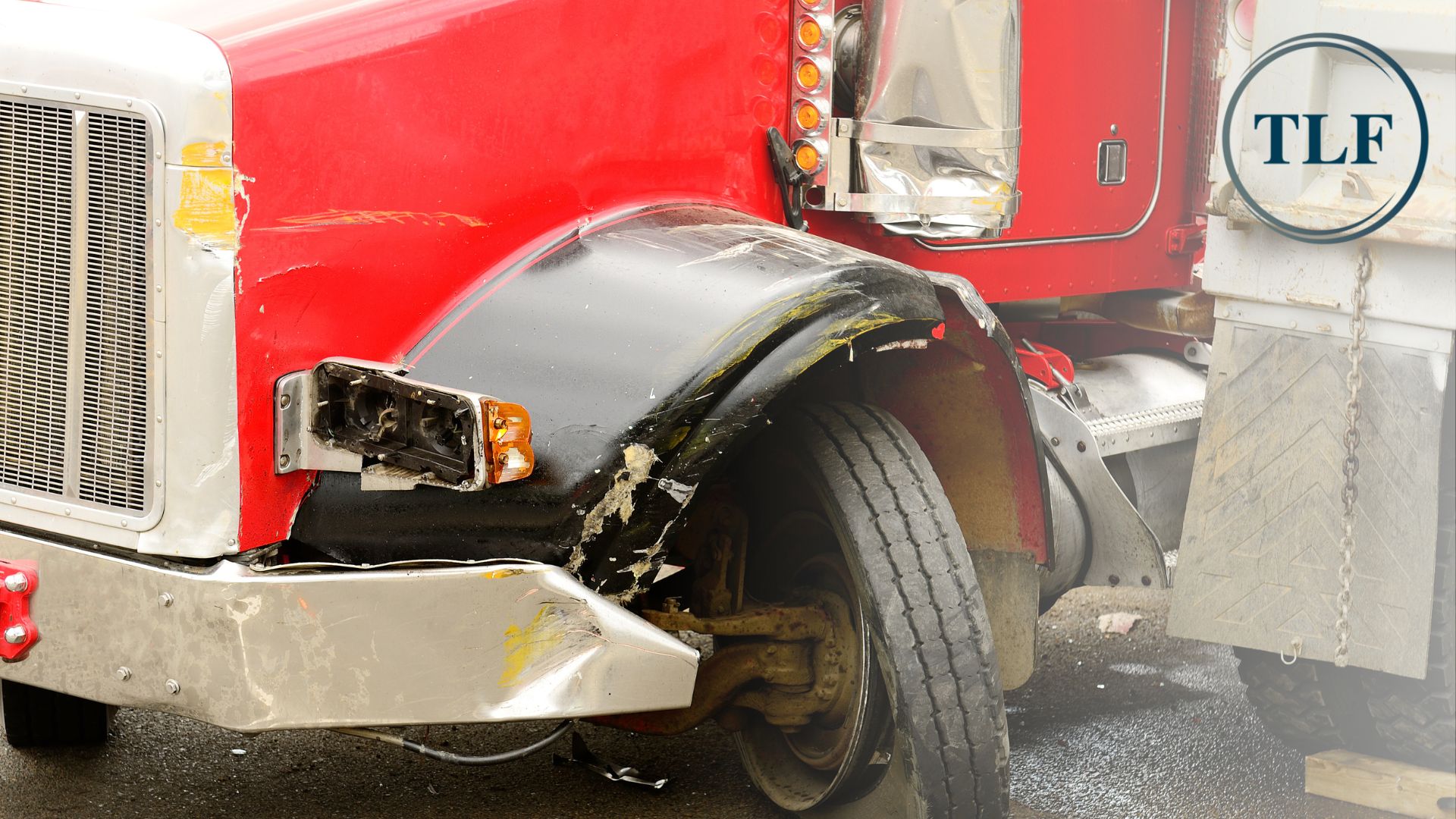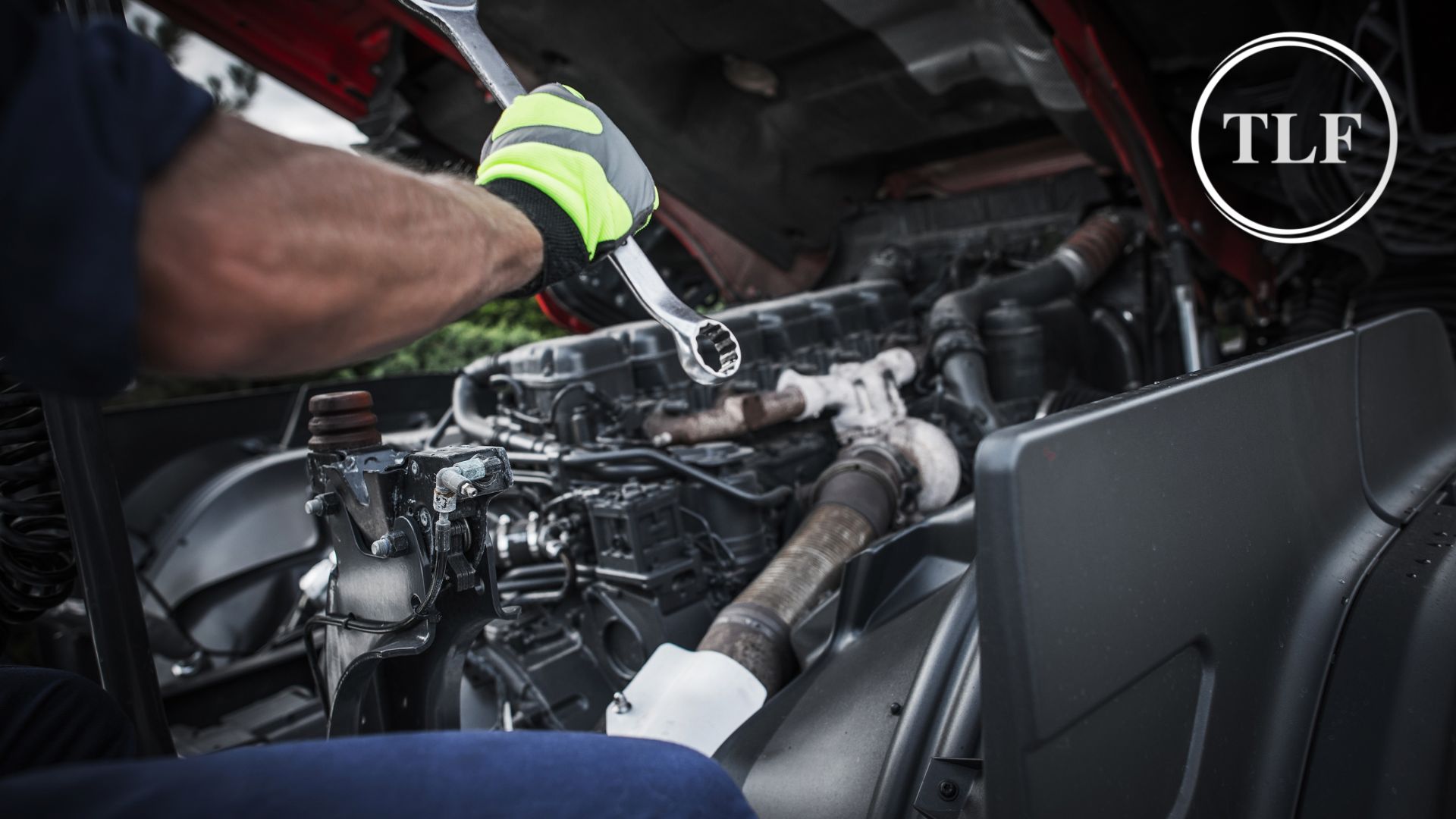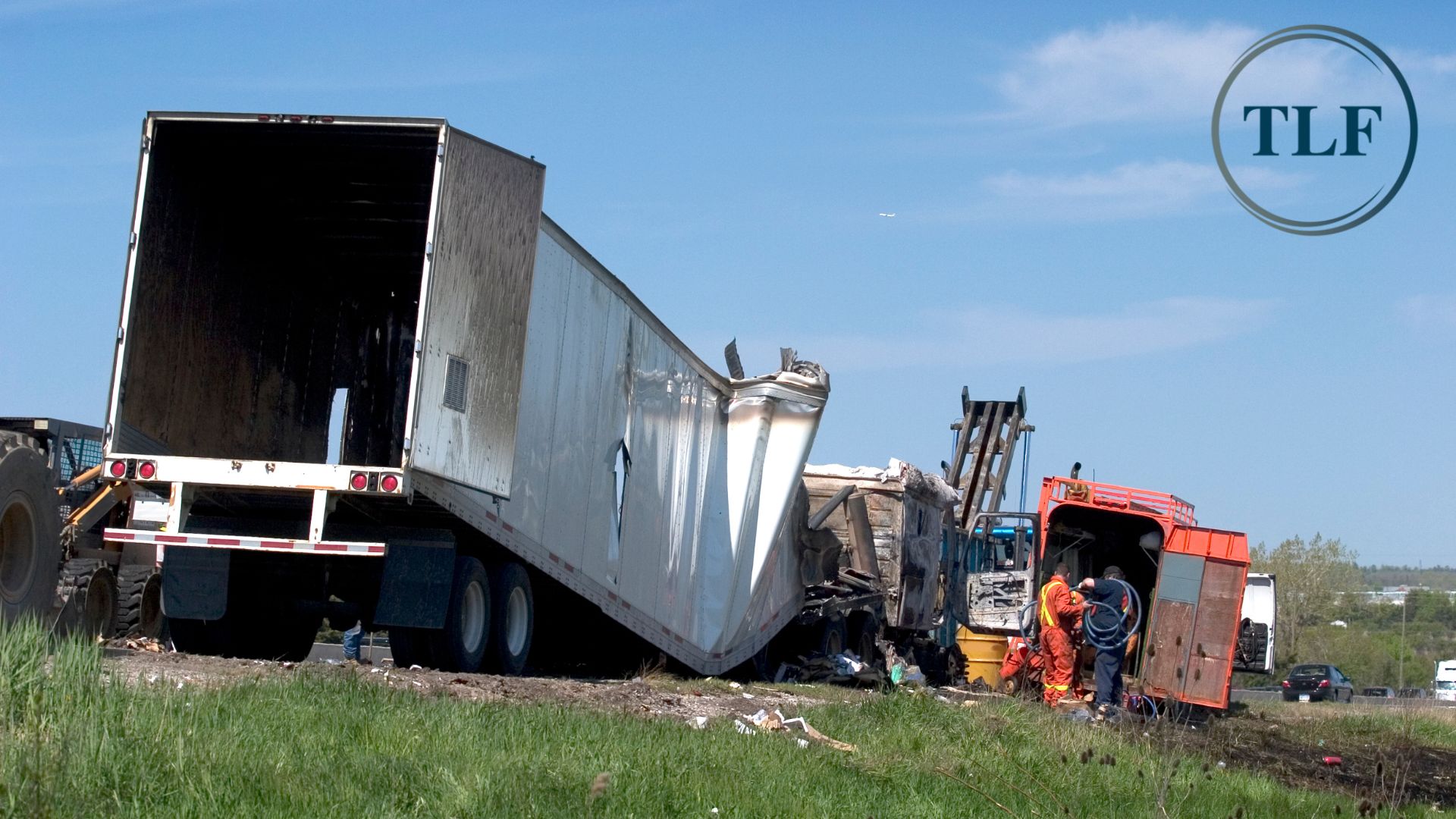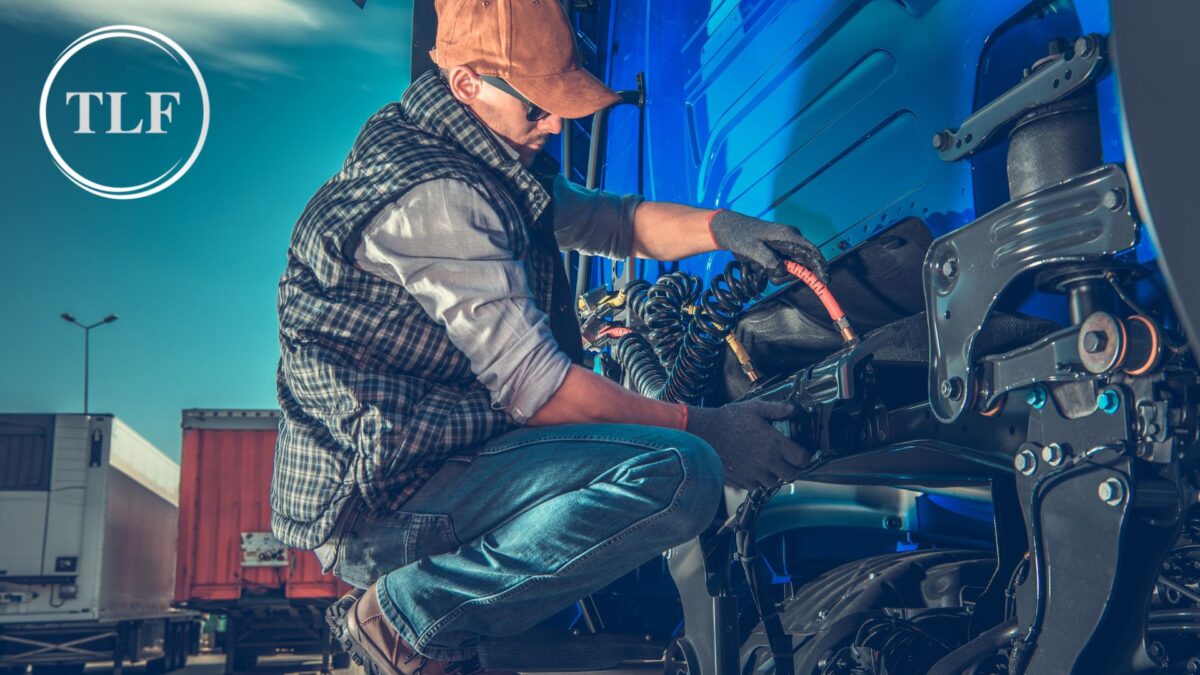When a commercial truck is involved in an accident, the results can be catastrophic. Compared to a regular passenger vehicle, these trucks can crush a car like a tin can, leaving those involved with critical or life-threatening injuries. According to the National Safety Council, over 5,000 people were killed in commercial truck accidents in 2021 alone.
You could be entitled to financial compensation if you or a loved one suffered catastrophic injuries from a commercial truck accident. Contact the Ohio and Northern Kentucky semi-truck attorneys at TLF: The Medical Injury Law Firm today to learn more about the damages you and your family could be entitled to. Call us at (800) 698-4054 to schedule a free consultation.

Common Causes of Truck Accidents
Due to the size of commercial trucks and their massive weight, it can be difficult for them to come to a sudden stop or avoid other road hazards quickly. When semi-trucks are not properly maintained or loaded, it can cause these driving errors to be even more dangerous.
The most common causes of truck accidents due to lack of maintenance and negligence are:
- Loads not secured: When the loads that trucks carry are not properly secured or evenly distributed, it can cause an accident, especially when the truck is trying to turn or stop. If the truck pulls a trailer with improperly secured loads, it could fall off the trailer and cause a road hazard or accident.
- Low liquid loads: Trucks often transport liquids like gas or oil, but when the truck is not fully loaded, it can cause the fluids to splash and spill. The weight of the liquid can also contribute to an accident if the truck makes any sudden turns or stops.
- Brakes: When brakes are not properly maintained, they can lead to brake failure. Brake issues can be caused by poor maintenance, lack of inspection, overheating, or condensation. When brake failure causes an accident, many parties can be held responsible, including the manufacturers.
- Windows, lights, and mirrors: If not in working order, they can prevent the driver from reacting to other vehicles and make it difficult for other vehicles to see them, especially during inclement weather.
- Tires: With the massive amount of weight that trucks carry, they put a lot of pressure on their tires. When tires are not rotated properly or replaced, they can lead to tire problems like blowouts.
- Malfunctions: Other drivers are at risk when truck components fail due to faulty design or installation. This can be due to the manufacturer not pulling a defective piece of equipment or the company skipping maintenance.
How Poor Maintenance Can Contribute To These Causes
It’s common for drivers to ignore that inspection sticker on their car and get to it later. However, it can have deadly consequences when a truck driver skips a regular maintenance appointment.
If a regular passenger vehicle experiences brake failure, it can seriously injure the driver and others involved, but when semi-truck brakes fail, the results can be catastrophic.
This is why the Federal Motor Carrier Administration (FMCSA) regulates the commercial trucking industry by requiring regular proper maintenance on all commercial vehicles. When drivers or companies skip maintenance on their trucks to save money or because they forgot, they can create unsafe road conditions. When truck brake pads, tires, or other features are not maintained, they lead to vehicle breakdowns or accidents.
It’s also essential for manufacturers, loaders, and companies to adhere to proper safety guidelines as well. If loads are not appropriately secured, trucks are not maintained properly, or manufacturers don’t pull faulty parts, the results can be catastrophic.

Federal Regulations for Truck Maintenance
One area that the FMCSA regulates is proper maintenance. Truck companies are responsible for performing regular vehicle maintenance on their trucks. Some of the federal regulations that the FMCSA monitors are:
- Periodic inspections are to take place once every 12 months
- Correcting any defects or violations noted on roadside inspections
- Recordkeeping of repairs, inspections, and maintenance
- Post-trip inspections are to be documented at the end of each trip
Importance of Regular Inspections for Commercial Trucks
Commercial truck drivers put much more wear and tear on their trucks than the average person does on their vehicle. The FMCSA set the maximum driving time for truck drivers at 11 hours a day. If a truck driver puts 650 miles on their truck during that trip, a minor issue with the truck can quickly become a much larger issue. Drivers need to perform the post-trip inspection that is required by the FMCSA so that they can catch any mechanical issues. These inspections allow drivers to maintain their trucks and save companies money.

Liability for Truck Accidents
Determining liability in a commercial truck accident can be difficult because of how many parties are involved. Some parties that may be held liable for damages are the trucking company, driver, loader, and manufacturer, for example.
- Trucking company: When the commercial truck company is found liable, it could be because they scheduled the driver for too many trips, did not properly train the driver, or told the driver to ignore regulations. The company could have skipped inspections to save money and maximize profits. Trucking companies are often found liable because truck drivers are their employees and are driving on their behalf.
- Driver: When the driver’s negligence caused an accident, they can be liable for damages. Driver negligence can include speeding, driving under the influence, texting, driving recklessly, or driving while fatigued. The driver can also be considered negligent when they perform illegal maneuvers like not staying in their lane, improperly changing lanes, or making an illegal U-turn.
- Loaders: To maintain truck safety, semi-trucks must be loaded in a particular way. If loaders do not adequately distribute the weight the truck is carrying, it can lead to an accident. Loaders are also responsible for ensuring that the trucks’ loads are properly secured. If the loads are not secured, serious accidents can occur. When the weight isn’t distributed properly, or the load isn’t secured, the loading company can be held liable for damages, and anyone responsible for checking the load to ensure it was safe for travel.
- Manufacturer: If the case of the car accident was due to a defect on the truck, parts, or trailer, the manufacturer could be held liable. For instance, manufacturers are responsible for testing the parts that are installed on their trucks. If parts were recalled and the company continued to use them, that would be negligence on the manufacturer’s part.

Why You Need a Northern Kentucky Truck Accident Attorney
Semi-truck drivers share the road with thousands of other drivers every day. When an act of negligence like skipping vehicle maintenance causes an accident, it can result in devastating consequences for those involved. If you have a semi-truck accident claim, finding the right attorney to represent you and your family is essential to ensuring you receive the maximum compensation from all parties involved.
The compassionate Ohio and Northern Kentucky truck accident attorneys at TLF understand how emotional a catastrophic accident can be for you and your family, especially when wrongful death occurs. When improper vehicle maintenance contributes to the accident, many parties could be held liable, and we are ready to take them all on. Whether it’s a large trucking company, manufacturer, driver, or insurance company, you’re in good hands with the personal injury attorneys at TLF. To schedule a free consultation regarding your truck accident claim, call us today at (800) 698-4054.

